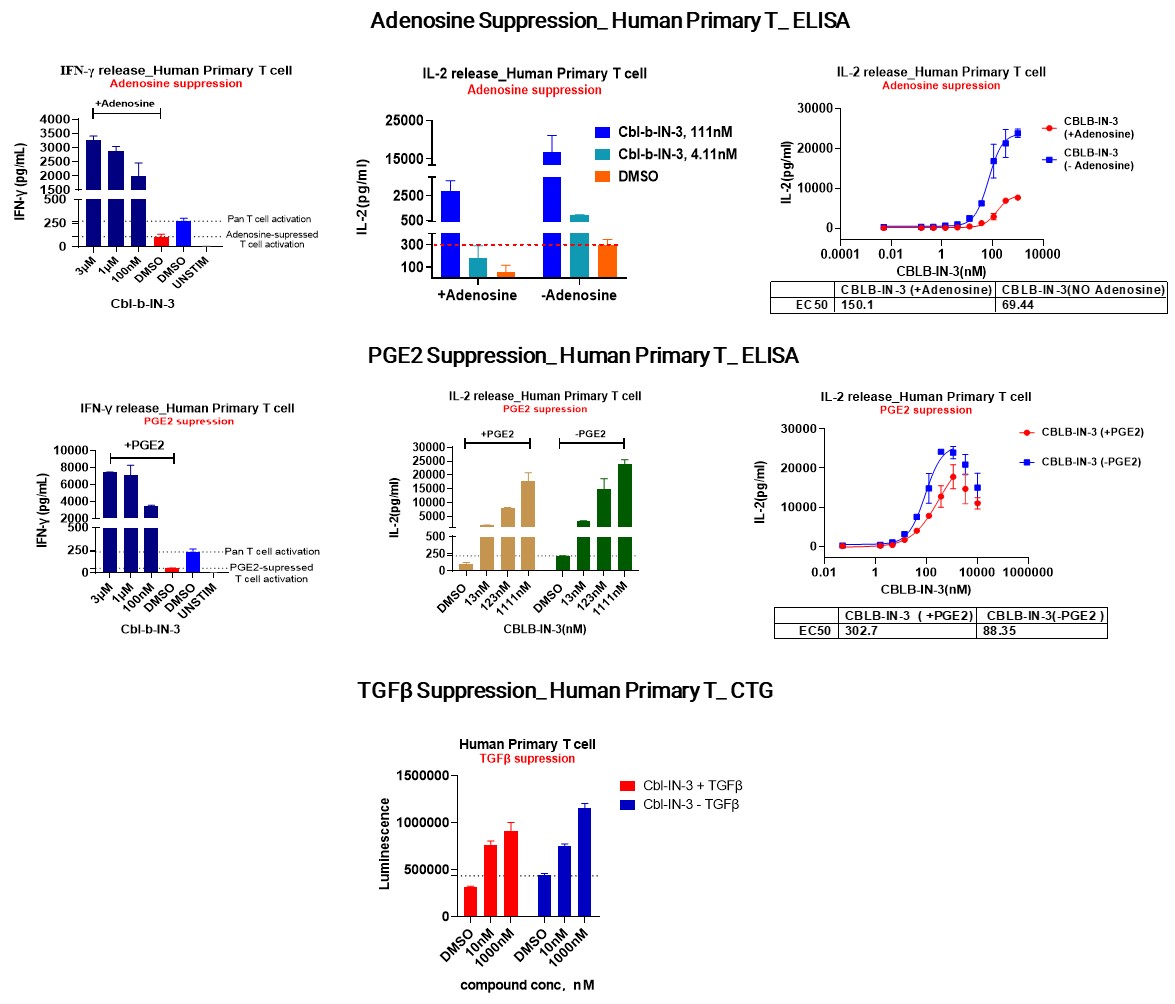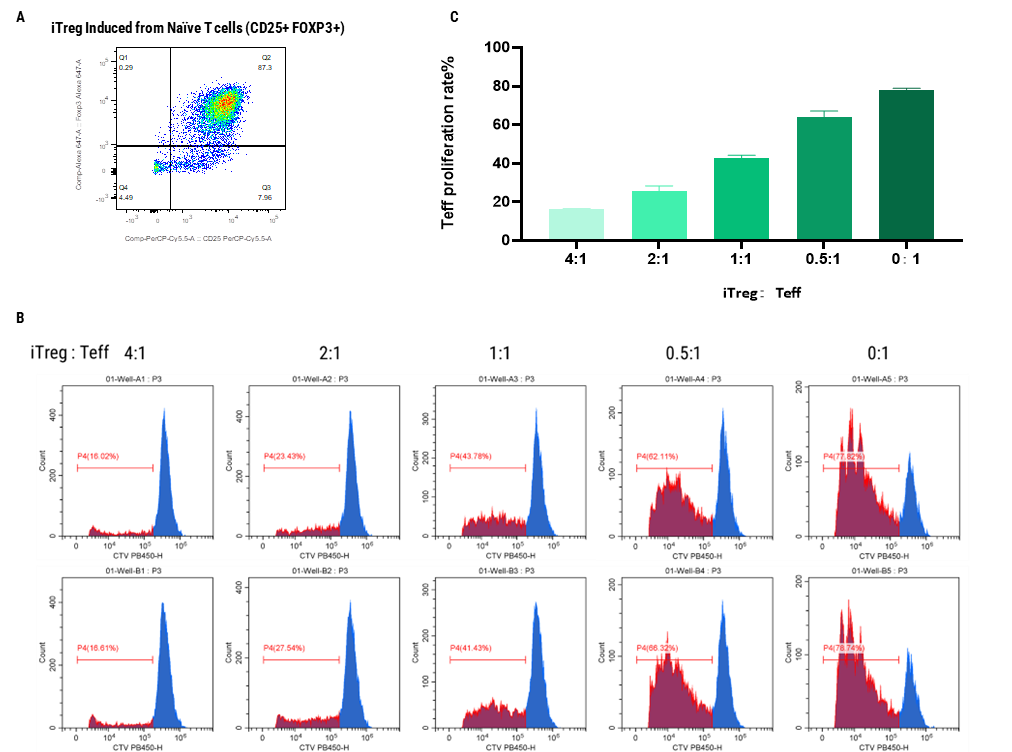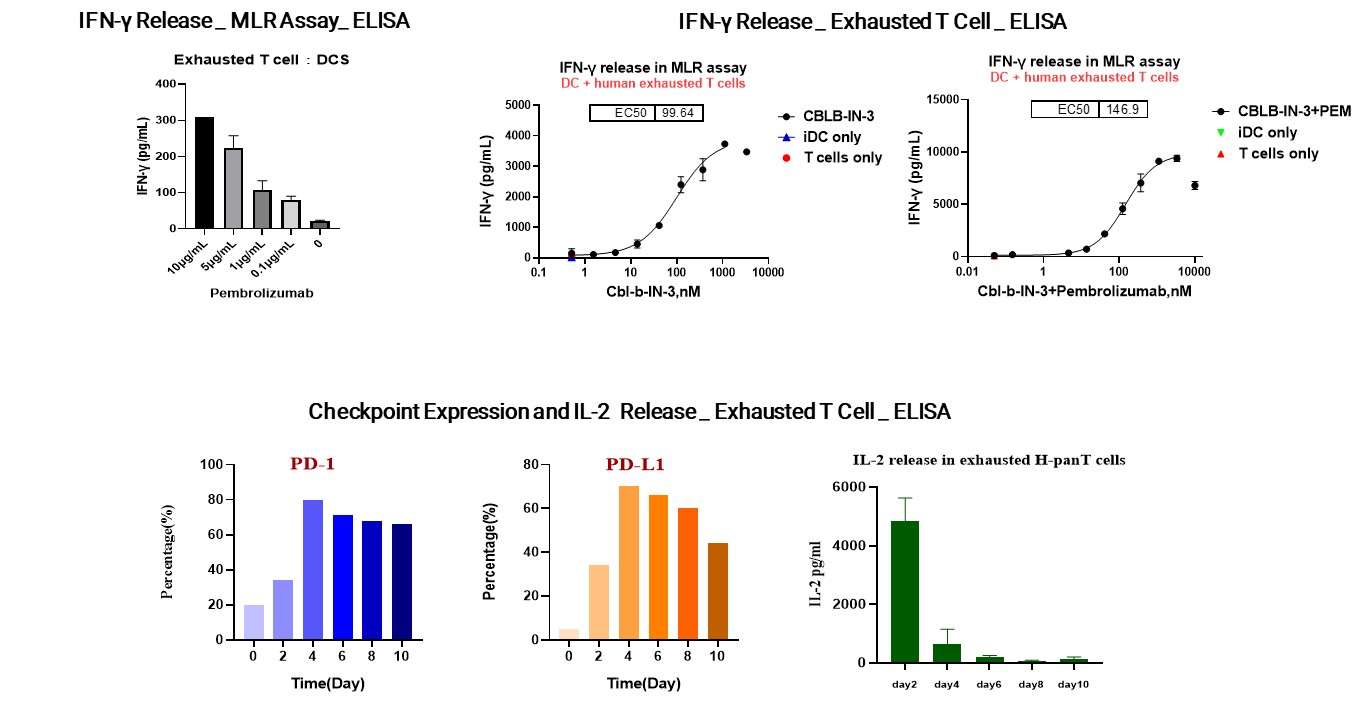In the rapidly advancing field of immunology and immunotherapy, understanding the mechanisms of immune suppression is crucial for the development of effective treatments for autoimmune diseases, cancer, and chronic infections. Immunosuppression Assays are a vital tool in this research, providing insights into how various factors influence the immune system's ability to regulate itself. These assays help in evaluating the suppressive effects of regulatory cells, drugs, and other immunomodulatory agents on immune responses. Below, we outline three key types of immunosuppression assays: Global T Cell Suppression Assay, Treg-Mediated Suppression Assay, and T Cell Exhaustion Assay.
Our Global T Cell Suppression Assay service is designed to evaluate the inhibitory effects of various immunosuppressive agents on T cell function, particularly focusing on primary human T cells. This assay is critical for understanding how specific factors regulate immune responses by suppressing T cell activity, providing valuable insights for the development of immunotherapies, treatments for autoimmune diseases, and strategies for transplant tolerance.
Key Suppressive Agents: We assess the impact of well-known immunosuppressive factors such as Adenosine, PGE2, and TGF-β on T cell function. Each of these agents plays a crucial role in modulating immune responses, making this assay a comprehensive tool for studying T cell suppression.
Assessment of IL-2 Release: The primary method used to evaluate T cell activity is the measurement of IL-2 release, a key cytokine involved in T cell proliferation and activation. For agents like Adenosine and PGE2, we utilize ELISA to quantify IL-2 levels, providing precise and reliable data on the degree of T cell suppression.
TGF-β Suppression: When studying the effects of TGF-β, we employ the CellTiter-Glo method. This approach measures cell viability and metabolic activity, offering a different but complementary readout that highlights the suppressive impact of TGF-β on T cell proliferation and overall health.

Our Treg-Mediated Suppression Assay evaluates the ability of regulatory T cells (Tregs) to suppress the proliferation of effector T cells (Teff). This assay is crucial for understanding how Tregs help maintain immune balance, which is key in developing therapies for autoimmune diseases, cancer, and transplant rejection.
In this assay, naïve CD4+ T cells are isolated from human PBMCs and induced to become inducible Tregs (iTregs). These iTregs are then co-cultured with Teff cells at varying ratios. The proliferation of Teff cells, tracked by flow cytometry, provides insights into the suppressive capacity of the iTregs.
This assay is particularly useful for assessing the impact of potential therapeutic compounds on Treg function, aiding in the development of new immunotherapies.

Our T Cell Exhaustion Assay is designed to evaluate the functional status of exhausted T cells, which are often seen in chronic infections and cancer. This assay helps to understand how these cells respond under prolonged activation and how potential therapies can restore their function. In this assay, T cell exhaustion is induced and then assessed through several key markers:
IFN-γ Release: Using an MLR assay with exhausted T cells and dendritic cells (DCs), we measure the release of IFN-γ through ELISA. This helps to evaluate the diminished effector function typical of exhausted T cells.
PD-1/PD-L1 Expression: We monitor the expression levels of PD-1 and PD-L1 over time to track the progressive increase in these inhibitory receptors, which are hallmark indicators of T cell exhaustion.
IL-2 Release: The release of IL-2 by exhausted T cells is measured over different time points to assess the decline in their proliferative capacity, providing insights into the severity of exhaustion and the potential for functional recovery.
This assay is particularly useful for testing the effectiveness of immunotherapies aimed at reversing T cell exhaustion, such as checkpoint inhibitors, and offers valuable data for developing treatments in oncology and chronic disease management.


We value your inquiries and are here to provide you with tailored solutions for your drug discovery and development needs. Whether you have questions, require more information, or are interested in discussing potential collaborations, our team of experts is just a message away.
Feel free to reach out to us.